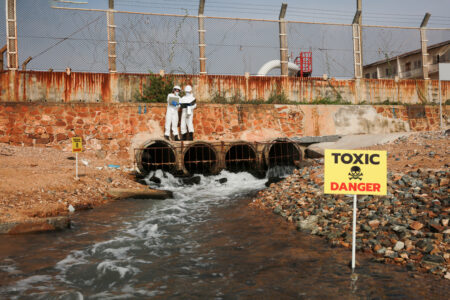
Share On Social!
In another attempt to roll back environmental protections, the EPA is proposing to revise the Mercury and Air Toxics Standard (MATS).
However, the agency received a total 473,714 comments that provide insights and opinions that largely urge against their proposed plans; 231 members of the Salud America! network also sent an email to EPA Chief Andrew Wheeler pressing for clean air quality.
A large portion of these comments focuses on the EPA’s recent de-regulatory efforts, and their refusal to make policy decisions based on scientific findings or relevant data, according to The Pump Handle.
Last month, a coalition of 21 attorneys general filled comments that oppose the proposed rule as well as issuing a press release that rebukes recent environmental rollbacks.
“EPA blinds itself to relevant facts, ignoring data regarding the actual costs and benefits of controlling power-plant hazardous air pollution and instead proposing to rely on a stale and incomplete record that EPA knows is obsolete and not reflective of facts on the ground,” the joint statement says.
Serious Concerns at Hand
The EPA believes the current evidence provided by these bodies and individuals do not justify current regulation standards.
“After taking account of both the cost to coal- and oil-fired power plants of complying with the MATS rule and the benefits attributable to regulating hazardous air pollutant (HAP) emissions from these power plants…the Agency proposes to determine that it is not ‘appropriate and necessary’ to regulate HAP emissions from power plants,” their recently published MATS fact sheet states.
The agency also notes that the new proposed ruling would not impact the emissions limits currently set on mercury.
However, members of the energy sector do not agree, according to Energy & Environment.
Michael Nasi, a lawyer for the national coal company Peabody Energy Corp., gave written testimony to the Indiana Utility Regulatory Commission in which he discusses this matter.
“[There is] the very real possibility that EPA will withdraw MATS entirely, or at least significantly reform the rule to reduce its ongoing [operations and maintenance] cost burden,” Nasi wrote in his February statement.
The impacts of increasing mercury pollution could be wide-reaching and severe for all Americans, but especially for the Latino community.
Consequences Going Forward
Studies show that the Latino community is currently exposed to higher levels of air pollution when compared to their white peers.
If the EPA enacts its proposed revision, the policy change could further harm this demographic, who already suffers from air pollution-related maladies such as asthma attacks.
Worse, data has shown MATS to be a successful initiative, according to the Union of Concerned Scientists’ Julie McNamara.
“[MATS went] far under expected cost, with no negative effects on grid reliability, and achieving a 96% reduction in annual emissions of hazardous air pollutants—including an 86%, or 25-ton, drop in mercury—by 2017,” McNamara writes.
The EPA will continue its review of this regulation policy, then come to a final decision when it has drawn a conclusion based on their findings and public comments.
Read more about environmental, chemical exposure!
Editor’s Note: This article is part of a collaboration between Salud America! and the Hoffman Toxicant-Induced Loss of Tolerance (TILT) program at UT Health- San Antonio. To find out if you are TILTed due to exposure to everyday foods, chemicals, or drugs, take a self-assessment or learn more about TILT.
By The Numbers
1
Quick Survey
Can help you find out how chemically sensitive you are



